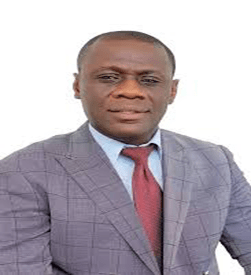By Samuel Lartey (Prof.) [email protected]
Ghana, often hailed as one of Africa’s most stable democracies, finds itself at a critical juncture. Years of internal and external pressures have led to a prolonged economic slowdown that has affected every sector, leaving citizens grappling with hardship and uncertainty.
As the country stands on the brink of an election year, the specter of increased government spending and its potential impacts on economic indicators, political destinies, and the livelihoods of businesses and citizens looms large.
A Legacy of Challenges
The economic downturn in Ghana did not occur overnight. It has been the result of a combination of internal and external factors that have gradually eroded the resilience of the economy. Internally, Ghana has faced significant challenges in managing its public finances.
High levels of public debt, persistent budget deficits, and inefficient government spending have strained the economy. The energy sector, in particular, has been a persistent drain on public resources, with the country struggling to provide reliable power to businesses and households alike.
Externally, Ghana has not been immune to the global economic shocks that have swept across the world in recent years. The COVID-19 pandemic, while a global crisis, hit Ghana hard, leading to disruptions in trade, reduced foreign direct investment, and a significant drop in revenue from key sectors like tourism and commodities. The war in Ukraine further exacerbated these challenges, causing supply chain disruptions and contributing to rising inflation, particularly in food and fuel prices.
These internal and external pressures have culminated in a period of protracted hardship for the citizens. Unemployment rates have soared, businesses have struggled to stay afloat, and the cost of living has become increasingly unbearable for many. As Ghanaians prepare to head to the polls, the question on everyone’s mind is whether the next government will be able to steer the country back onto a path of economic recovery.
Election Spending: A Double-Edged Sword
The upcoming election poses both a challenge and an opportunity for Ghana’s economic recovery. On the one hand, election years are often associated with increased government spending as politicians seek to win favor with voters through various initiatives, including infrastructure projects, social programs, and subsidies. While this spending can provide a temporary boost to the economy, it also carries significant risks.
One of the primary concerns is that increased government spending in the lead-up to the election could exacerbate the already precarious fiscal situation. Ghana’s public debt levels are already high, and further borrowing to finance election-related expenditures could push the country into even more unsustainable debt levels. This, in turn, could lead to a loss of investor confidence, higher borrowing costs, and potential downgrades by credit rating agencies.
Moreover, the focus on short-term, election-driven spending could divert resources away from more sustainable, long-term investments that are crucial for economic recovery. For example, while building new roads or schools may create immediate jobs and generate goodwill among voters, these projects may not necessarily address the underlying structural issues that have contributed to the economic slowdown, such as the need for reforms in the energy sector, improving tax collection, and reducing corruption.
Impact on Economic Indicators
The impact of election spending on Ghana’s economic indicators will be closely watched by both domestic and international observers. Key indicators such as inflation, exchange rates, and GDP growth are likely to be influenced by the government’s fiscal policies in the run-up to the election.
Inflation, which has been a persistent challenge in Ghana, could rise further if increased government spending leads to higher demand for goods and services without a corresponding increase in supply. This would further erode the purchasing power of citizens, particularly those on fixed incomes, and could contribute to social unrest.
The exchange rate could also come under pressure if election-related spending leads to a widening of the fiscal deficit and a loss of confidence in the government’s ability to manage the economy. A depreciating cedi would make imports more expensive, further fueling inflation and putting additional strain on businesses that rely on imported goods and materials.
On the other hand, if managed prudently, election spending could provide a much-needed stimulus to the economy. Increased government investment in infrastructure, for example, could boost GDP growth by creating jobs and stimulating demand in related sectors such as construction and manufacturing. However, the key will be ensuring that this spending is targeted and efficient, rather than wasteful and politically motivated.
Political Destinies and the Future of Ghana
The outcome of the upcoming election will have far-reaching implications for Ghana’s political and economic future. The stakes are high, as the next government will inherit an economy that is still reeling from the effects of years of mismanagement and external shocks.
One of the key challenges for the next administration will be to restore confidence in Ghana’s economic management. This will require a commitment to fiscal discipline, transparency, and accountability. The government will need to take decisive action to reduce the fiscal deficit, manage public debt, and implement structural reforms that address the root causes of the economic slowdown.
At the same time, the new government will need to balance the need for economic recovery with the demands of a restive population that has grown weary of hardship and broken promises. The success or failure of the next administration in addressing these challenges will determine not only its political fortunes but also the future trajectory of the Ghanaian economy.
The Livelihoods of Businesses and Citizens
For businesses and citizens, the road to recovery will be long and difficult. The uncertainty surrounding the election, and its aftermath is likely to weigh heavily on investor sentiment and business confidence. Many businesses may adopt a wait-and-see approach, delaying investment and expansion plans until the political and economic environment becomes clearer.
For citizens, the immediate concern will be the cost of living. Rising prices, particularly for food and fuel, have already strained household budgets, and any further increases could push more people into poverty. The government’s ability to manage inflation and stabilize the economy will be crucial in determining the livelihoods of ordinary Ghanaians in the months and years ahead.
At the same time, there is an opportunity for Ghana to emerge stronger from this period of crisis. The challenges of the past few years have highlighted the need for greater economic diversification and resilience. By investing in sectors such as agriculture, manufacturing, and technology, Ghana can reduce its reliance on volatile commodity exports and build a more sustainable, inclusive economy.
Conclusion:
Ghana’s journey to economic recovery will not be easy, but it is not impossible. The upcoming election represents a critical juncture, where the decisions made by both the government and the electorate will shape the country’s future for years to come.
If managed wisely, the challenges of the present can be transformed into opportunities for growth and development. However, this will require a collective commitment to fiscal discipline, structural reforms, and long-term investment in the country’s future. For businesses and citizens alike, the road ahead will be difficult, but with the right leadership and policies, Ghana can emerge from this period of hardship stronger and more resilient than ever before.










